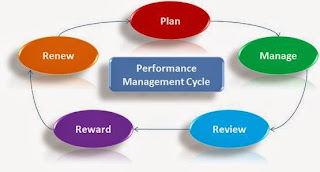Some organizations recognized the benefits of using data as a means to provide meaningful and useful results. These organizations enjoyed rapid growth with intelligent decisions, both for themselves and as a service for their customers. The organizations that collected massive amounts of data and failed to transform the data into business intelligence and performance management System became colorful examples of failed business plans. The failed organizations became vacant high rise versions of lined with ping pong tables and beanbag chairs. Meanwhile, the organizations that turned data into knowledge, metrics into performance management, and fed intelligent responses to customers, became dominant forces in a new economy. The Internet is an ocean of publicly accessible data, most of which may be considered worthless when taken out of context. However, when this enormous vault of human knowledge and creativity is harnessed and focused through the single microscopic lens of a search engine to sort, filter, and present the relevant data, then the data becomes knowledge on a silver platter.
You really do have a crystal ball, because history really does repeat itself. If you have collected historical data and measurements, then you have the framework to begin building your the future according to your own plans and blueprints.Alternately, you can collect data to make colorful road map reports of where you have been, and select the graphs that portray only the desired perspectives. Reports tell the truth, and nothing but the truth, but often do not portray the whole truth. You will know when you are on the right track when your metrics, dashboards, and performance management look forward at least as much as they report backward on historical trends.
Cashing in data and history for performance management Consultants, knowledge, and revenue is not just for big organizations. The same principles apply for individual planning and performance as well.Reports that contain all available data may be overwhelming and may actually hide important facts or trends.Increase the reports of overall activity with specific, focused, exception based reports that isolate the data elements that you have determined to be catalysts for your business. The exception based reports are based on those exceptions from normal business that you have identified as the root cause for good or bad effects. These concentrated reports should be reviewed for immediate response, and the overall effects should create a consistent result in the reports for overall accumulated activity.
Personal planning and internal organizational planning, balance short term goals with long term goals. This is especially true when balancing personal and professional budgets. Short term investments should be balanced with long term rewards. Spending a budget when it is available, to avoid losing it, is sometimes in the best interest of both short term and long term goals. Putting off an activity, scheduling time and resources, is often highly influenced by immediate and urgent needs. Compare urgent needs to long term priorities and extended impact to determine the best balanced approach.
You really do have a crystal ball, because history really does repeat itself. If you have collected historical data and measurements, then you have the framework to begin building your the future according to your own plans and blueprints.Alternately, you can collect data to make colorful road map reports of where you have been, and select the graphs that portray only the desired perspectives. Reports tell the truth, and nothing but the truth, but often do not portray the whole truth. You will know when you are on the right track when your metrics, dashboards, and performance management look forward at least as much as they report backward on historical trends.
Cashing in data and history for performance management Consultants, knowledge, and revenue is not just for big organizations. The same principles apply for individual planning and performance as well.Reports that contain all available data may be overwhelming and may actually hide important facts or trends.Increase the reports of overall activity with specific, focused, exception based reports that isolate the data elements that you have determined to be catalysts for your business. The exception based reports are based on those exceptions from normal business that you have identified as the root cause for good or bad effects. These concentrated reports should be reviewed for immediate response, and the overall effects should create a consistent result in the reports for overall accumulated activity.
Personal planning and internal organizational planning, balance short term goals with long term goals. This is especially true when balancing personal and professional budgets. Short term investments should be balanced with long term rewards. Spending a budget when it is available, to avoid losing it, is sometimes in the best interest of both short term and long term goals. Putting off an activity, scheduling time and resources, is often highly influenced by immediate and urgent needs. Compare urgent needs to long term priorities and extended impact to determine the best balanced approach.

No comments:
Post a Comment